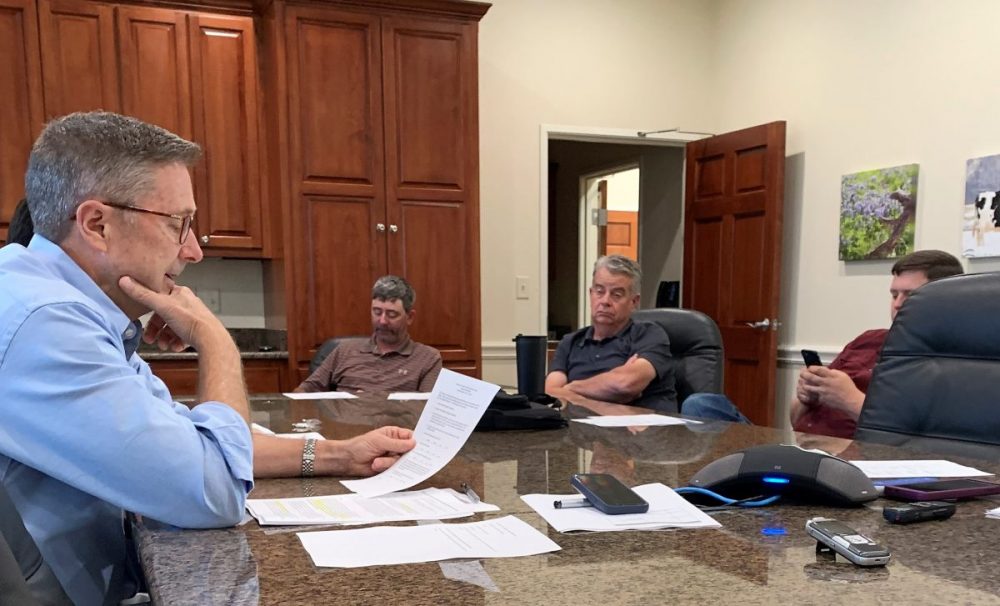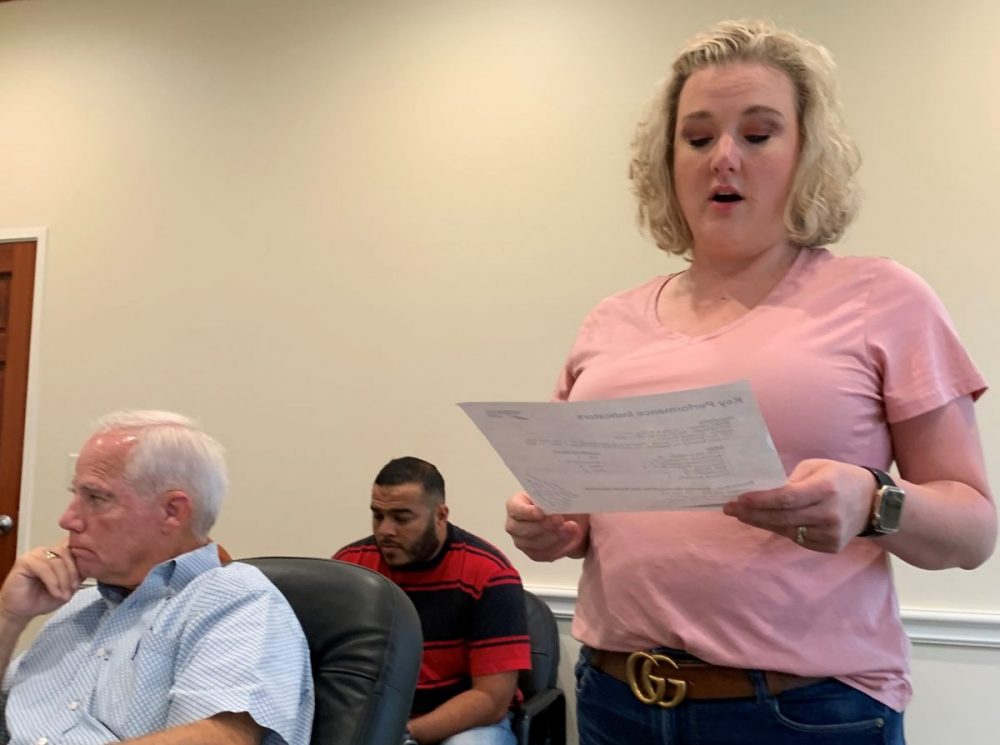After months of discussion, Northeast Texas Rural Rail Transportation District (NETEX) agreed to a vegetation cleanup agreement, as well as amendments to the track reimbursement and management obligation agreements with North East Texas Connector, the division of Freedom Rail Group contracted to serve as operators for the NETEX railroad. A right-of-way usage rate schedule for private landowners was also approved as recommended by RAMS, the company that handles fees related to right-of-way and crossing uses.

In the original agreement between the rail group and rail operator, NETC contracted to within 2 years of taking over rail operations upgrade the track to Class 1, then, within 5 years upgrade the track to Class 2 standards. NETEX agreed to return a portion of the amount NETC back to NETC for track maintenance.
The rail operator asked owner NETEX back in the fall of last year to consider amending their operating agreement to allow NETC to skip the Class 1 requirement as NETC plans to skip Class 1 upgrades and work to attain Class 2 status. Given the condition of the track and amount already invested in upgrades and still to be done, working for Class 2 all the way is more cost effective that getting the track up to Class 1 then going back and tearing part of that up a short time later to get the track up to Class 2 standard.
Also, NETEX was asked several months back to consider assisting NETC with the cost or effort of removing vegetation from along the right-of-ways and track. Some options considered were asking counties and cities with interests in NETEX to contribute funding or manpower to help clear the vegetation for their portion of the railroad, helping or purchasing equipment to be used by NETC to clear the vegetation and debris to keep it from causing safety hazards and damage to the rail, especially bridges, paying to help pay for a company to clear the vegetation from along the rail.
After months of negotiations, NETEX agreed to eliminate requirement for NETC to upgrade the track to Class 1 in 2 years, and instead NETC will strive to upgrade the track to Class 2 within 7 years which would be in July 2027, or show significant progress to get to Class 2.
NETC agreed to waive the first year of reimbursement obligation owed by NETEX for track maintenance. NETEX in turn will pay $4,500 per month to NETC for vegetation cleanup efforts in lieu of the 50 percent reimbursement from the carload fee to NETC for 60 months. NETC will see to clearing of the brush, using equipment the $4,500 will help pay for and which NETC owner Mike Salek believes his company can do more efficiently than if he hires someone to do it. At the end of the 60 months, NETEX will go back to paying the 50 percent reimbursement from carloads to NETC for track maintenance.
The $4,500 is currently only $6 less than the total sum NETC remits to NETEX for its share of the carloads carried on the railroad, NETEX Treasurer Neal Barker noted. NETEX Chairman Brian Lee said, hopefully, the positive improvements should increase business, allowing more companies to get their product quicker, which in turn would increase the amount received for carload fees monthly.
Board member Mickey Barker asked once the order is in, how soon NETC would begin clearing the right-of-way using the equipment. Salek said it’s anticipated to take 90 days after the check is written to receive the needed lawnmowing and brush clearing equipment in Sulphur Springs. The work is expected to take 430 days. He asked the chairman to sign a letter that states the agreement so that it can be provided to the financial institution from which funding for the equipment.

Salek also indicated he’d like to host NETEX symposium in the next year and invite elected officials, EDC officials and boards from the cities and counties where NETEX is located and invite potential and customers and other stakeholders to update them on progress and provide education about NETEX, what it is and what it offers.
Hopkins County EDC Executive Director Roger Feagley, at the Aug. 5, 2021, meeting told NETEX board that the transload facility is progressing. The design is down and permits attained. Anticipated is a pre-bid meeting and opening bids at the end of the month. The project could move forward by Sept. 1, and is then projected to be complete by the end of the year, pending weather or COVID related delays.
Amanda Fernandez with FRG/NETC reported 112 carloads in July 2021, 41 more than in June. That’s 700 carloads so far in 2021, compared to the 285 carloads from July 1-Dec. 31, 2020, on the NETEX rail. The average inbound cycle time averaged 1.3 days. In July 239 ties were installed, and 43 FRA 30-day defects and three bridges were repaired in July.





